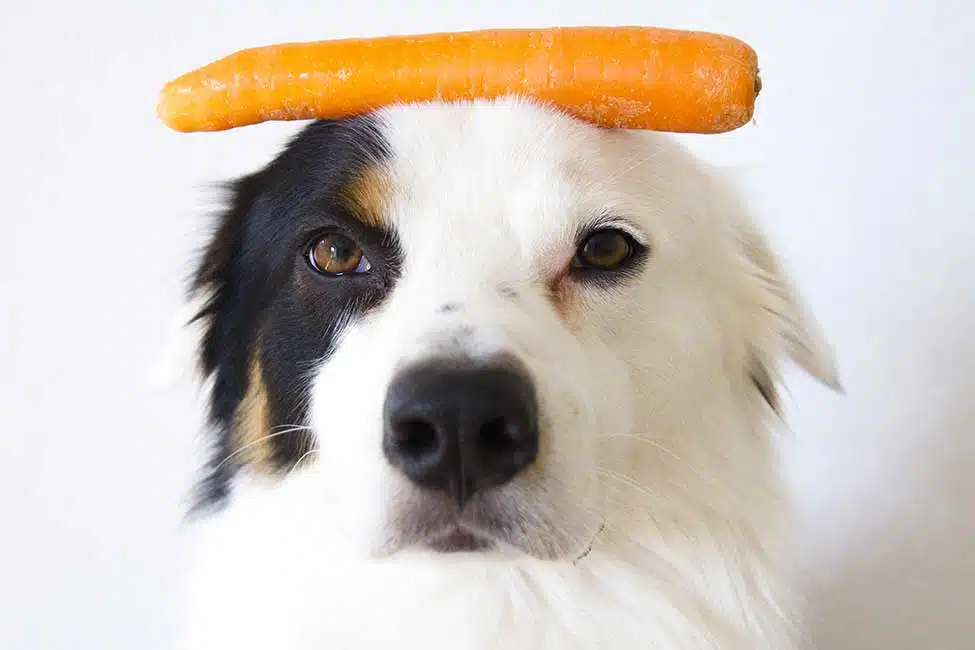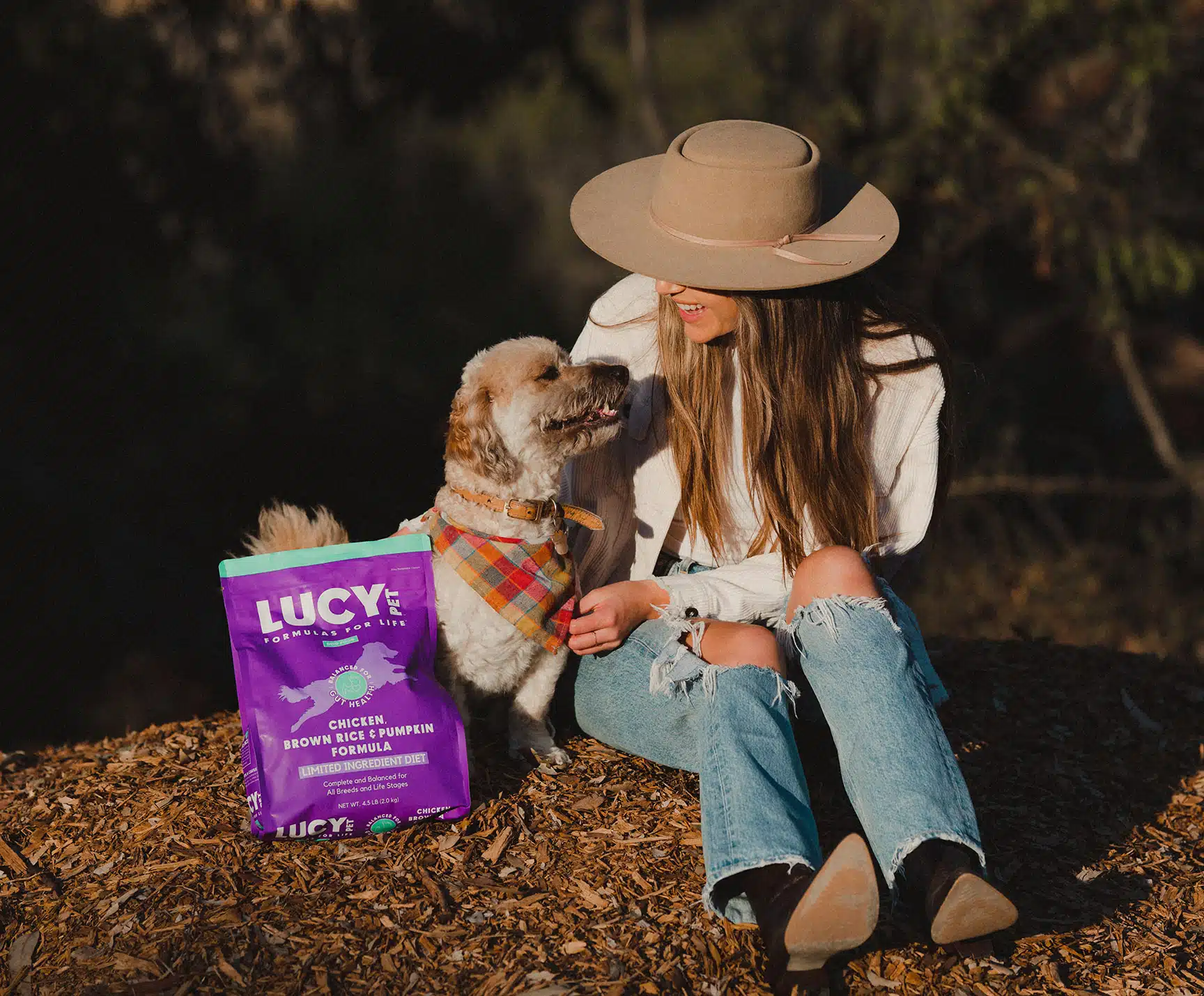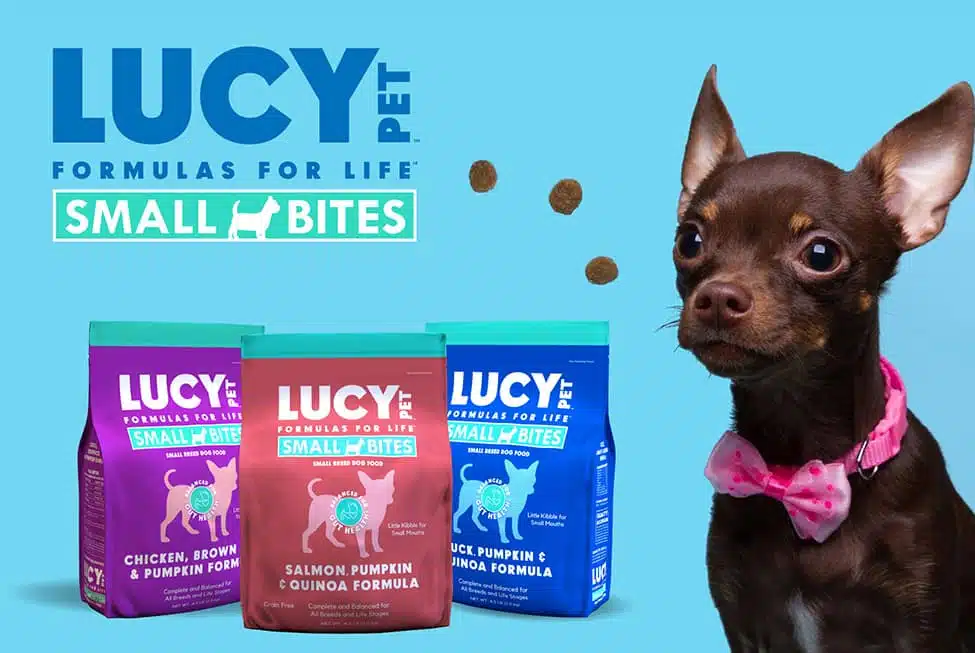
Safest and Best Veggies for Dogs. Since dogs require very different nutrition than humans, it can be difficult to determine which vegetable dogs should eat. You might think it’d be more straightforward when it comes to the safest and best veggies for dogs. All vegetables are good for most people, so they must be good for most dogs, too, right?
Many vegetables like carrots, peas, and broccoli contain a whole host of important minerals, vitamins, and dietary fiber—all of which are important for bone and heart health, maintaining a healthy weight. Yet some vegetables should not be fed to dogs, as they can be downright toxic.
This can leave many pet owners confused and wondering which vegetables dogs can eat. Or if veggies are even good for dogs at all?
Don’t worry, because our animal nutrition experts at Lucy Pet are here to help!
In this article, we’ve rounded up the Top Ten Safest and Best Veggies for Dogs, and we’ll teach you how to prepare and serve the healthiest ones to your furry friend.
We’ll also explain which vegetables you’ll want to avoid giving to dogs, so there will be no confusion.
Top 10 Safest and Best Veggies for Dogs
Below are 10 dog-friendly vegetables, including instructions on how to prepare them.
However, before making any significant changes to your dog’s diet, it’s important to consult your veterinarian first. While most vegetables are safe for dogs, some veggies should be avoided entirely.
But even the safest and best veggies for dogs may cause negative symptoms like constipation and indigestion due to food sensitivities—so when including new food groups into your dog’s diet, pay attention to how they react.
That said, vegetables are one of the best ways to enrich your dog’s diet with important vitamins and minerals, and what’s more, they’re a powerful tool for weight loss! While cooking any of the safest and best veggies for dogs, it’s important to avoid seasonings like garlic and onions, as both of these ingredients are toxic to dogs and can make them extremely sick.
1. Potatoes
Potatoes are a great source of vitamin B6, vitamin C, manganese, and are rich in antioxidants like beta-carotene. They’re an excellent source of fiber, which is important for improving gut and digestive health.
Remember, a healthy gut is your pet’s first line of defense, so it’s best to ensure your dog’s diet contains plenty of nutritious fiber.
Before serving potatoes to dogs, make sure to wash them thoroughly and dice them into small wedges. Then, you can either bake them on a pan with a little olive oil or boil and mash them. Make sure they are well cooked and soft for easy digestion.
2. Asparagus
Asparagus is a great source of several important vitamins, including vitamins K, A, B1, B2, C, and E. Asparagus also contains a bunch of other important nutrients like folate, iron, copper, manganese, and potassium.
To prepare asparagus for dogs, remove the ends from the asparagus spears and wash them rigorously. Then, cook them on a skillet with olive oil for 1-2 minutes.
Once cooked, chop into bite-sized pieces and serve!
3. Broccoli
Broccoli is another nutritional powerhouse safe to feed dogs, and contains a wide array of vitamins, including vitamins K and C. It also contains potassium, which is especially important for dogs, as it strengthens bones and improves heart health!
To prepare broccoli for dogs, wash it well, and cut it into small pieces.
Place the broccoli in boiling water for 5-10 minutes until tender. Alternatively, broccoli can also be microwaved in as little as 5 minutes—just be sure to use a microwave-safe container and let it cool down!
4. Brussels Sprouts
Like broccoli, Brussels sprouts are a member of the cruciferous vegetable family and are rich in vitamins and dietary fiber. What’s more, Brussels sprouts contain a whole host of antioxidants that reduce inflammation and improve blood circulation.
If you want to prepare Brussels sprouts for dogs, first wash thoroughly and cut off the stems (make sure the leaves are still intact). Then, toss them into a microwave-safe container with water and microwave for about 8 minutes.
Alternatively, you can also boil your Brussels sprouts for 10 minutes.
And although Brussels sprouts are perfectly healthy for dogs, we only recommend treating your best friend to 1-2 Brussels sprouts at a time.
Why?
Brussels sprouts are known to contain a high level of isothiocyanate—a substance that improves the intestinal muscle’s ability to dispose of waste through the gastrointestinal tract.
The result of too many is lots and lots of gas!
Although serving dogs more than 2 Brussels sprouts isn’t dangerous, it may upset their stomach or give them a bad cause of the runs.
And as always, if you’re worried about your pet, please consult your veterinarian if your dog is having stomach issues lasting longer than a couple of days.
5. Carrots
Carrots are one of the best veggies for dogs as they contain important nutrients like vitamins A, K, C, fiber, and potassium.
What’s more, carrots can be served either cooked or raw. However, no matter how you decide to serve them up, it’s important to cut them into bite-sized chunks. This makes them easier to chew and digest.
To prepare carrots for dogs, simply wash and then cut into bite-sized pieces. To cook, place chopped carrots into a boiling pot of water for 10 minutes or until tender.
6. Cauliflower
Cauliflower is a great source of vitamin C, K, and B6, in addition to other important nutrients like folate and choline.
And while cauliflower can be served raw, we don’t recommend it, as it’s more likely to give your best friend gas.
If you want to offer cauliflower to dogs, keep in mind that you’ll have plenty of options for preparation. Cauliflower can be steamed, boiled, or roasted with a little bit of olive oil.
7. Cucumber
Cucumbers are great for dogs, as they contain lots of phytonutrients and antioxidants, which provide anti-inflammatory and other important health benefits.
They are also extremely low-calorie (about 8 calories per one-half cup), so you don’t have to worry about affecting your dog’s weight.
However, that doesn’t mean you should give your dog all the cucumbers they can eat, as giving your dog too many slices of cucumber may cause an upset stomach.
That said, cucumbers are still an excellent treat for helping your dog lose weight. Cucumbers are 96% water, making one of the most hydrating vegetables on this entire list!
8. Edamame
Edamame is another nutritious vegetable that can help your best friend lose weight. What’s more, this vegetable is packed with omega-3, calcium, and vitamin C, which are important for healthy skin and coat.
And although we may be used to eating edamame with a bit of salt or soy sauce, these seasonings are can dehydrate your dog and cause indigestion.
Edamame for dogs can be served raw, steamed, or even as a frozen treat. Before serving, make sure to remove the bean from there shell, as the shell can be difficult to chew and can cause choking in smaller dogs.
9. Green Beans
Green beans are another healthy and low-calorie vegetable suitable for dogs. They are a great source of nutrients like vitamins C, D, and A, in addition to manganese, and fiber.
However, we don’t recommend serving green beans to your pet raw, as they might cause an upset stomach due to lecithin proteins. Fortunately, cooking green beans removes this protein entirely!
To prepare green beans for dogs, wash rigorously, and cut off the ends. Then, place green beans in boiling water for about 10 minutes and serve when cool.
For dogs with upset stomachs, you can also cook green beans with a bit of brown rice and chicken in chicken broth!
10. Peas
Last but not least are peas!
Peas are a great source of vitamins K and C, in addition to manganese, fiber, folate, phosphorus, protein, magnesium, and so much more!
These essential nutrients are great for your best friend’s vision, skin, digestion, and immune system. What’s more, peas can even promote heart health!
However, if your dog happens to have kidney issues, it might be best to avoid this vegetable. Peas contain purines that worsen kidney-related issues.
You can give peas to dogs raw, frozen, or cooked. Please note that English peas must be shelled before serving. Furthermore, it’s best to avoid canned peas due to their high sodium content.
What Fruits and Vegetables Are Bad For Dogs?
Although most vegetables are generally safe for dogs to eat in limited quantities, there are a few fruits and vegetables that are toxic to dogs, including:
- Alliums like onions, garlic, and chives
- Mushrooms
- Rhubarb
- Grapes, raisins, and currants
- Persimmons, peaches, plums, apricots, and cherries
These foods should be avoided, as they can cause indigestion, problems with the nervous system, organ failure, seizures, comas, and even death.
If your dog has consumed any of the above foods, we advise calling your veterinarian and taking your dog to the nearest emergency clinic ASAP.
How to Add Safest and Best Veggies to Your Dog’s Diet
The best way to add vegetables to your dog’s diet is to slowly integrate them into your dog’s daily meals.
Additionally, vegetables can be given to your dog as a treat for good behavior. But just like any other treat, it’s important to not overdo it!
As mentioned, some vegetables on this list can cause indigestion, so it’s important to exercise restraint—even if your best friend is giving you the dreaded puppy face!
Most of the vegetables recommended in this article can be chopped up or sprinkled onto your dog’s current food, which will give it not only a unique flavor edge but also a powerful nutrient boost.
That said, it’s important to monitor your dog whenever changes to his or her diet occur.
Finally, because many of the vegetables on this list contain a large amount of fiber, make sure fresh water is always available for your dog. Consuming a high fiber diet can cause your pet to be thirstier than normal.
Support Your Dog’s Health With Lucy Pet Formulas For Life™!

We hope you’ve enjoyed this list of veggies dogs can eat! Lucy Pet Foods has added many vegetables to their formulas!
It may be difficult to determine how to choose the best dog food. Lucy Pet has made that process much easier with our Formulas for Life™ dog food.
What’s more, our Formulas for Life™ diets combine real meats like duck, chicken, or salmon with a proprietary P.B.F Prebiotic Balanced Fiber™ blend made of brown rice, pumpkin, flaxseed, and other superfood ingredients to bolster your dog’s digestive health and immunity.
Our P.B.F formulation is based on 40 years of research and studies by Dr. George C. Fahey, a renowned scientist and expert in animal nutrition, and is designed to help your best friend live their best dog life!
Make the switch to Lucy Pet’s dog food today and see the difference!






Leave A Comment
You must be logged in to post a comment.